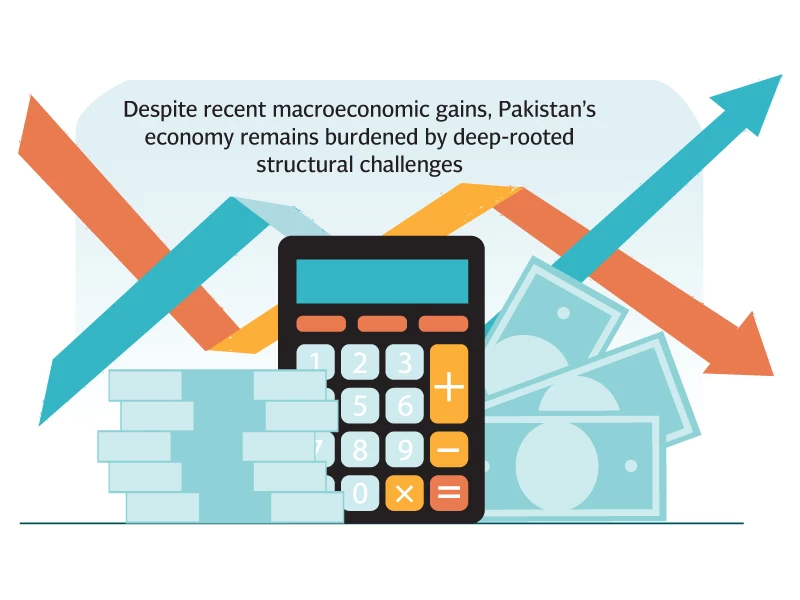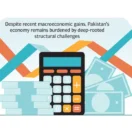By Hassan Baig
Published in The News on August 22, 2023
Since Pakistan’s economy is in deep trouble, the government has taken various steps to help improve it. But so far, most measures have proved to be a total waste except for one initiative: the decision to form the Special Investment Facilitation Council (SIFC) headed by the prime minister of Pakistan. The chief of army staff (COAS) is also a member and will support the initiative for the purposes of continuity and stability.
At present, a caretaker setup is in place as Pakistan prepares for elections. While there are speculations about the period of the caretaker government, the importance of the SIFC cannot be denied even under such a setup. The SIFC can be a game changer if it is managed rightly, and it can also go the other way if not taken seriously. So by all means, it is a wild card in the hands of policymakers to help improve the economy by putting it on the sustainable path towards development and growth.
The SIFC seems to be an extension of the former National Development Council (NDC) announced four years back in June 2019, whereby the then army chief was made a member of the council to make it a success. But the NDC could not achieve much because of multiple reasons, including the non-seriousness shown by the then government. Now the outgoing government of former prime minister Shehbaz Sharif formed the SIFC to attract foreign investment, especially from the Gulf Cooperation Council (GCC) countries in the fields of agriculture, mining, energy, IT and defence.
The SIFC’s apex committee has already decided to set up a special purpose vehicle (SPV) company to run its affairs on professional lines. The question is whether the much-hyped SIFC will be able to attract foreign direct investment or prove to be another hoax in the making. It all depends on the government. One also wonders why setups like the NDC or the SIFC are formed in the presence of the Board of Investment (BoI) working under the prime minister.
Such an exercise leads to the duplication of institutions, which is common in Pakistan and has always been a cause of disturbance among institutional working. The SIFC has swiftly started working on its well-defined goals, attracting investments from the GCC countries, as we saw the Abu Dhabi Ports Company (ADPC) acquiring berths of Karachi Port Terminals on a 25-year lease. The outsourcing of three priority airports of Islamabad, Lahore and Karachi is also under consideration. The SIFC has also recently identified the potential of the Diamer-Basha Dam to attract about $14 billion in investment.
The Diamer-Basha Dam project has a lot of potential to attract investment, and work has already been started to bifurcate it into two components: water and power. There are chances of investment in the power component by the GCC countries, and work is already underway to raise investment for this project under the SIFC.
This is also true for the corporate farming potential in the field of agriculture, which is being considered to attract investment from China under CPEC as well as from the GCC countries. The armed forces have already taken an initiative to go all-out for corporate farming by irrigating barren government lands. The SIFC would be interested in offering such an investment opportunity to potential investors in the field of agriculture.
The SIFC with a full-fledged secretariat would be in a position to chalk out the detailed investment potential, especially in the fields of mining and minerals for which activation of institutions like the Pakistan Minerals Development Corporation is a must. Pakistan has the potential of at least $500 billion investment in the mining sector.
Thousands of billions of dollars could be earned in revenue through such investments in this sector. This all depends on facilitation through one-window operations as envisaged by the SIFC to explore that potential in this important sector of the economy. Projects like the Thar coal power project, Reko Diq mine project, Saindak gold project have the huge potential to offer and attract potential investors to invest in this vital sector to revive our ailing economy.
The energy and defence sectors also have potential for investment for the revival of the economy, as rightly identified by the SIFC. The energy sector has already saturated itself as far as power plants are concerned. Now, the need is to go all-out for renewable green energy options. The traditional hydel power by building more dams like Diamer-Basha can be a point of investment.
The next is solar and wind power; this area can also attract potential investors if the National Electric Power Regulatory Authority (Nepra) could rationalize tariffs in this regard. There is an immediate need to explore this potential as such energy options will be a welcome step in the right direction, given the fact that ours is a climate-hit country facing climate challenges that are destroying our economy.
The defence sector is one of our prime sectors with a potential to attract investment. Defence expos have been a regular feature in this regard. Another thing to consider is the country’s privatization plans. The privatization list includes heavy industry to attract investment.
In fact, Pakistan should go for privatization of all state-owned enterprises (SOEs) to get rid of the subsidies being provided to them. This option can help the country earn billions of dollars. SOEs like the Steel Mills and PIA should immediately be privatized to get rid of losses. There are about 212 SOEs eating up a huge chunk of government revenues. The SIFC should take initiatives in its hands to help capitalize this huge potential by attracting the private sector.
While the SIFC can help the government meet its economic objectives, it is important to realize that such a dream could never be materialized without some of the necessary and sufficient changes. The first task is to restore law and order in the country. No investor will ever think of investing in a country where security is a rare commodity. The security situation should be improved through confidence-building measures with our neighbours.
It is equally important to help build the Pakistani people’s trust in our political system. In case our political system cannot deliver and the existing social contract in the form of the constitution is not respected, all may go to waste.
The policy of disrespect and disruptions has to be shunned for the higher objective of making this nation great and proud. The confidence of the people of Pakistan and potential investors has to be restored at all cost. All investors should be provided foolproof security not only of their life and liberty but also their investment by providing sovereign guarantees.
The one-window operation as suggested by the SIFC in its vision and mission statement is the ultimate solution to attracting investment. But that has to be implemented in letter and spirit.



